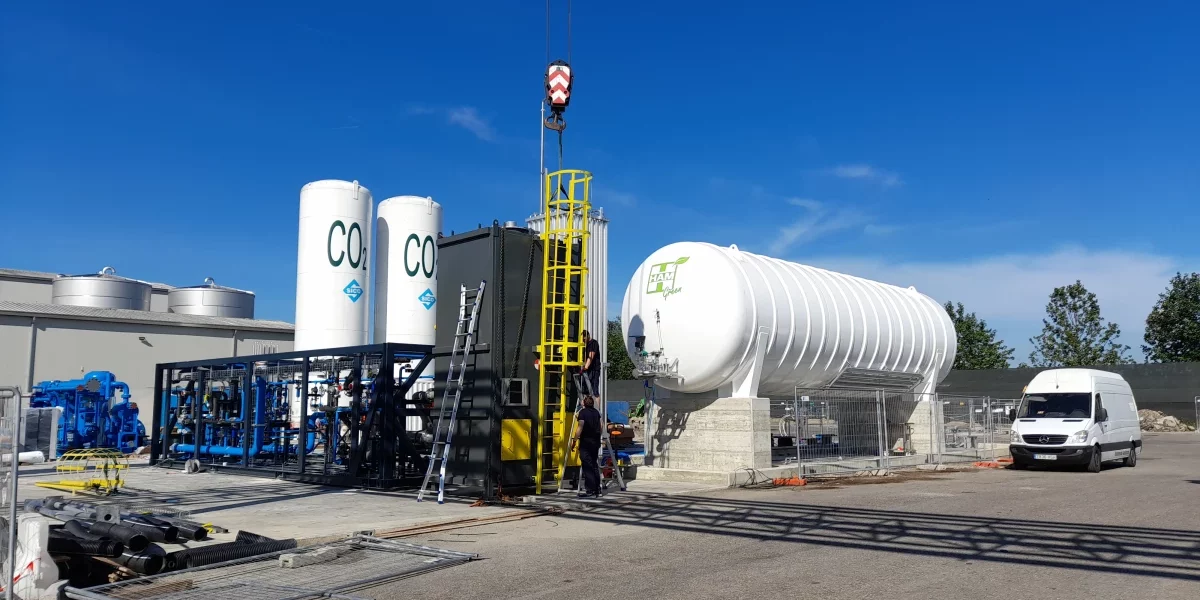Empresas Lipigas announced that the key modules that will allow the construction of the first plant that will produce bio-LNG in Chile are already being manufactured in Europe and that it will mean a real contribution to the decarbonization of cargo transport and the environment. With an investment of more than USD8 million, the facility will be located in the Ñuble Region and will have the capacity to process between 7,500 and 16,500 m3 of biogas per day.
The modules are being manufactured in Spain and will take eight months. Then, it will move on to the civil works and field assembly phase, in order to start operations during the fourth quarter of 2024. Once the plant is in operation, the equivalent of 150 long-distance trucks from Grupo Transportes San Gabriel can be decarbonized in a first stage.
In this way, the objective of Lipigas is to continue growing and developing new business areas and contribute to the reduction of carbon emissions in the freight transport industry through a circular economy system, since the gas will be obtained from the processing of organic waste.
In charge of manufacturing the upgrading and liquefaction modules is the HAM-FNX group, who has also developed the design and engineering of the bio-LNG plant. The final facility will have 1,125 square meters and will be the first of its kind in South America.
“At Lipigas we are committed to the growth of this market that offers a cost-efficient and real energy solution to decarbonize long-distance trucks. With this plant, the first heavy trucks using renewable LNG will be able to circulate in the country. We are very happy about the high interest of various companies in decarbonizing their transportation, for which we are already evaluating increases in bio-LNG production, thus contributing to the environment and a more sustainable future,” said Esteban Rodríguez, LNG Business Manager, Renewable Gases and Green Hydrogen from Lipigas.
“As Grupo San Gabriel, we are proud to continue leading and promoting the use of clean energy in the field of land transportation in Chile and throughout Latin America. We started this challenge in 2019 with the addition of trucks powered by LNG to our fleet and now we are taking a new step in changing the energy matrix in road freight transport, also hand in hand with our strategic partner Lipigas to launch renewable LNG as a new clean fuel that will begin to feed our fleet in the second half of 2024,” said Sebastián Calderón, General Manager of Grupo San Gabriel.
The construction of the bio-LNG plant joins various commitments that Lipigas has made in its LNG offer as an alternative to other fuels for the heavy transport industry, including the construction of two LNG stations in the regions of Valparaíso and Maule, which already supply fleets in the central zone of Chile.
With this, Lipigas seeks to advance in the creation of a national and international green corridor with service stations located from north to south at strategic points for long-distance cargo transportation.







